Meet our confirmed workshop participants
Name |
Affiliation |
Keywords |
|---|---|---|
| Katherine Alfredo | University of South Florida | Point-of-use, Water Treatment, Sustainability |
| Tim Bartrand | Exec. Direct, ESPRI | |
| Helen Buse | US EPA | Drinking Water Quality, Premise Plumbing Pathogens, Decontamination |
| Ellison Carter | Colorado State University | Housing, Indoor Air Quality, Household Decision-Making, Environmental Exposure |
| Peter Fisk | Exec. Director, NAWI | |
| Paul Francisco | Colorado State University | Home Performance, Health and Safety, Healthy Homes, Research-to-Practice |
| Charles Haas | Drexel University | |
| Chris Impellitteri | US EPA | Opportunistic Pathogens, Disinfectant decay, Scale/Biofilm Interactions |
| Juneseok Lee | Manhattan College | Hydraulics, Water Quality, Modeling |
| Darren Lytle | US EPA | Corrosion, Legionella, Disinfection, Unintended Consequences |
| Sheldon Masters | UC Boulder | Corrosion, Disinfection-By-Products, Opportunistic Pathogens |
| Ed Ossan | NRDC | Water Efficiency, Energy Efficiency, Resilience, Affordability |
| Ameet Pinto | Georgia Institute of Technology | Drinking Water Microbiome, Microbial Ecology, Extremophiles |
| Jonah Schein | US EPA | |
| Ashlynn Stillwell | University of Illilnois | Residential Water Heating, Energy Efficiency, End-Use Disaggregation |
| Jeff Szabo | US EPA | Flushing, Hot Water Heaters, Decontamination, Disinfection |
| Tania Ullah | NIST | |
| Paul Westerhoff | Arizona State University | Water Treatment Processes, Water Quality, Disinfection-By-Products, Nanosystems |
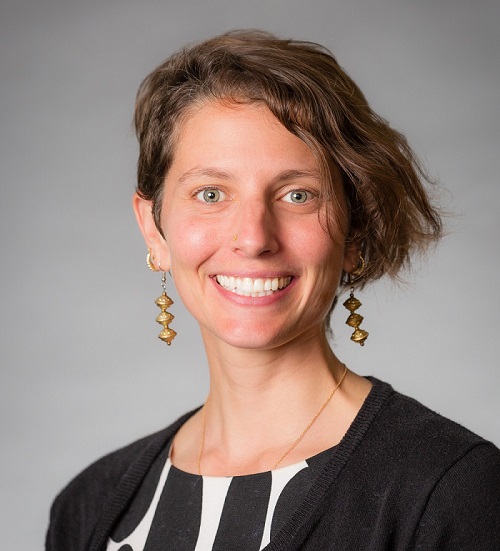
Katherine Alfredo, Ph.D, PE
Assistant Professor, University of South Florida
Dr. Alfredo is an Assistant Professor of Civil and Environmental Engineering at the University of South Florida. She received her Ph.D in Civil Engineering from the University of Texas Austin, was a U.S. Fulbright Fellow in Ghana from 2008 to 2009, and completed a short-term research position at the American Water Works Association policy division in Washington D.C. focusing on water quality compliance and policy. Her Postdoctoral Fellowship at the Columbia Earth Institute and as a Fulbright-Nehru Postdoctoral Scholar focused on a variety of projects ranging from understanding the water rates structure in the United States to community support of rural community water treatment technology in India. Upon return from her Fulbright-Nehru Postdoctoral Scholar tenure in India, Dr. Alfredo was Drinking Water Research Program Manager at DC Water, analyzing water quality changes due to installed point of use filters. Dr. Alfredo’s research expertise includes drinking water quality and treatment, decentralized treatment, sustainable potable water provisions, US and international water quality regulation, and community and household support of drinking water technology.

Tim Bartrand, Ph.D
Executive Director, The Environmental Science, Policy and Research Institute
Dr. Tim Bartrand is executive director of ESPRI – a nonprofit organization dedicated to advancing better understanding of water quality changes in building water systems and improved water quality at points of use. He has been a researcher at ESPRI since its inception in 2016. Prior to joining ESPRI, Tim worked as a consulting engineer supporting drinking water utility and federal agency drinking water, wastewater and recreational water research efforts. At ESPRI, as a key researcher on an EPA-funded building water research project (Drexel University was prime grant recipient), Tim led a one-year research study on biological and chemical water quality changes that occur in hot water systems. Tim holds a Doctoral degree in environmental engineering (Drexel U., 2007), Masters degrees in civil engineering (Ohio U., 1997) and mechanical engineering (U. of Tennessee, 1987), and a Bachelor’s degree in aerospace engineering (U. of Notre Dame, 1983). Tim is a returned Peace Corps Volunteer (Cameroon, 1983-1985) and worked as engineer in relief settings from 1997 to 2000. He maintains an interest in research advancing safe water for people in less technologically developed countries and conflict and disaster-effected regions.

Helen Buse, Ph.D
US EPA
Drinking Water Quality, Premise Plumbing Pathogens, Decontamination
Dr. Helen Buse is a microbiologist with EPA's Office of Research and Development in Cincinnati, Ohio. Since joining EPA in 2007, her research has focused on understanding the role of free-living amoebae, biofilms, water quality parameters, and operational and engineering aspects in the growth of Legionella pneumophila within drinking water systems. Her current work aims to utilize various treatment technologies to decontaminate and maintain drinking water quality within premise plumbing systems. Helen has a Ph.D. in Microbiology and Immunology from the University of Michigan and a B.S. in Biological Sciences from Carnegie Mellon University.
Ellison Carter, Ph.D
Colorado State University
More information to come
Peter Fisk
Executive Director, NAWI
More information to come
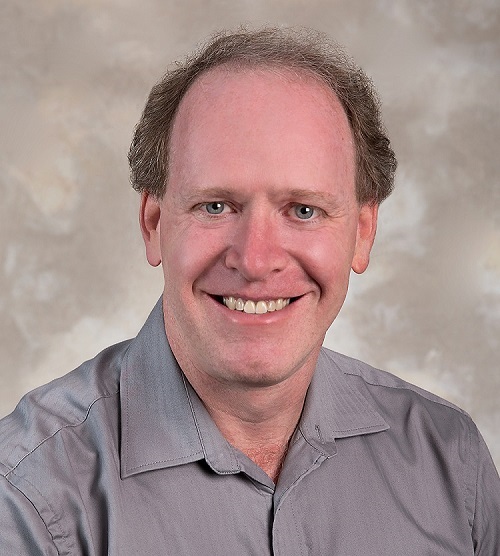
Paul Franscisco, Ph.D
Colorado State University
Home Performance, Health and Safety, Healthy Homes, Research-to-Practice
Paul Francisco has appointments at Colorado State University and University of Illinois at Urbana-Champaign. He directs the Indoor Climate Research and Training group at UIUC, which includes an accredited weatherization training center. His work focuses on issues related to home performance. His research focuses on indoor air quality and energy efficiency in existing homes, emphasizing field measurements. He trains practitioners on building diagnostics and healthy homes. He has held multiple leadership positions at ASHRAE, is a former member of the Building Performance Institute's Board of Directors, and is the current chair of the Building Performance Association Board of Directors.

Charles Haas, Ph.D, PE, BCEEM
LD Betz Professor of Environmental Engineering, Drexel University
Charles N. Haas is the L.D. Betz professor of environmental engineering and head of the Department of Civil, Architectural and Environmental Engineering, at Drexel University, where he has been since 1991. Dr. Haas specializes in the assessment of risk from and control of human exposure to pathogenic microorganisms, and in particular the treatment of water and wastewater to minimize microbial risk to human health. Dr. Haas has served on numerous panels of the National Research Council. He is a past member of the Water Science and Technology Board of the National Academies, and the US EPA Board of Scientific Counselors. In Feb 2021, Dr. Haas was elected as a member of the National Academy of Engineering.

Christopher A. Impelliterri, Ph.D
Associate National Program Director, US EPA
Chris serves as the Associate National Program Director for the USEPA Office of Research and Development’s Safe and Sustainable Water Resources Research Program. He leads EPA research on water treatment and infrastructure which focuses on drinking water, wastewater, water reuse, and stormwater issues.

Juneseok Lee, Ph.D, PE, D.WRE
Manhattan College
Hydraulics, Water Quality, Modeling
Dr. Juneseok Lee's research focuses primarily on Drinking Water Infrastructure Analytics, Premise Plumbing Issues, and Water Distribution Systems. In 2018 and 2020, he won the Best Paper Awards from the American Water Works Association (AWWA)’s Distribution and Plant Operations Division. Dr. Lee, who has a Ph.D. in Civil and Environmental Engineering from Virginia Tech, is a registered Professional Engineer of Civil Engineering in California and a board-certified Diplomate, Water Resources Engineer (D.WRE) from the American Academy of Water Resources Engineer. He currently serves on the Editorial Board/ Associate Editor of the ASCE Journal of Water Resources Planning and Management and AWWA Water Science.
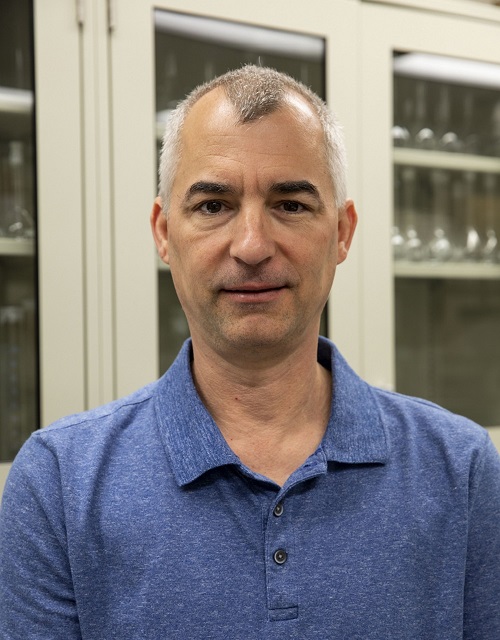
Darren Lytle, Ph.D.
US EPA
Corrosion, Legionella, Disinfection, Unintended Consequences
Dr. Darren A. Lytle is an environmental engineer for the Water Infrastructure Division (WID) of the U.S. Environmental Protection Agency’s (EPA’s) Center for Environmental Solutions and Emergency Response (CESER) in Cincinnati, Ohio. Since beginning work at EPA in 1991, Darren’s primary goal has been to research the quality of drinking water. Over the years, he has investigated and published works on drinking water systems, including work on distribution system corrosion control and water quality (e.g., red water control, lead and copper corrosion control); filtration (emphasis on removal of particles, and microbial contaminants and pathogens from water); biological water treatment; and iron and arsenic removal. He holds a B.S. in civil engineering from the University of Akron (1990), a M.S. in environmental engineering from the University of Cincinnati (1991), and a Ph.D. in environmental engineering from the University of Illinois (2005).
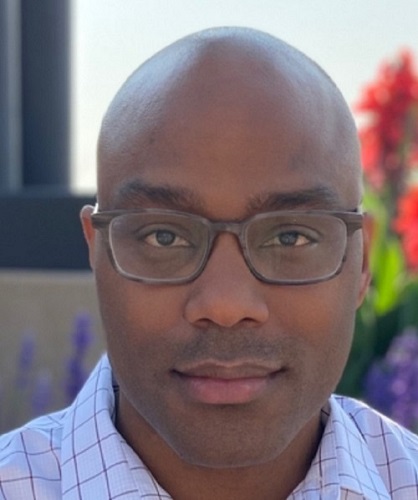
Sheldon V. Masters, Ph.D.
Assistant Professor, University of Colorado Boulder
Corrosion, Disinfection-By-Products, Opportunistic Pathogens
Dr. Sheldon Masters joined the Environmental Engineering Program at the University of Colorado Boulder in August 2021 and is rostered in the Department of Civil, Environmental, and Architectural Engineering as an Assistant Professor. Prior to joining CU Boulder, he was a Senior Environmental Engineer at Corona Environmental Consulting. At CU Boulder, Dr. Masters’ research will focus on the deterioration of treated drinking water quality caused by complex and poorly understood mechanisms such as plumbing corrosion and microbial regrowth. Dr. Masters holds Ph.D. and M.S. degrees in Civil Engineering from Virginia Tech. He obtained his B.A. in Mathematics from the College of Wooster (2009).
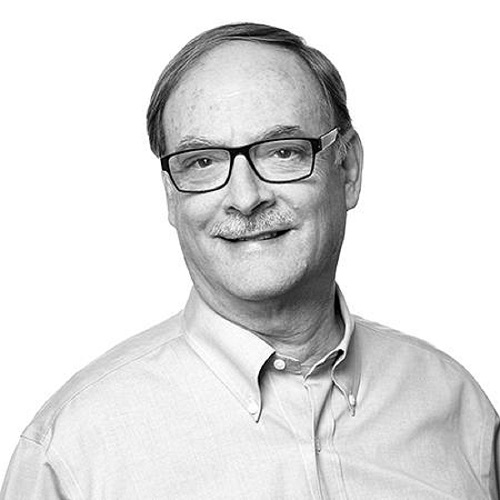
Edward R. Ossan
Senior Water Policy Analyst, People and Communities Program
Natural Resources Defense Council
Water Efficiency, Energy Efficiency, Resilience, Affordability
Ed Osann is a Senior Water Policy Analyst with NRDC’s People & Communities Program. Since 2009 he has led NRDC’s work on water efficiency through building codes, product standards, utility programs, and conservation pricing. From 1993 to 1996, he served as Director of Policy and External Affairs for the US Bureau of Reclamation. Ed holds a master’s degree in Urban and Regional Planning from George Washington University and a BS in International Relations from Georgetown University. In 2010, Ed received the Mike Moynihan Excellence Award for statewide innovation in water conservation from the California Urban Water Conservation Council. From 2013-16, Ed served on the 7-member Independent Technical Panel on Urban Conservation for the California Department of Water Resources. In 2016, Ed joined ISO Project Committee 305 to develop an international product standard for Sustainable NonSewered Sanitation Systems, serving as head of the US delegation to this committee. Ed is a member of the American Water Works Association’s Water Loss Control Committee and contributed to the prepublication review of AWWA’s Manual M-36, Water Audits and Loss Control Programs, 4th Edition.
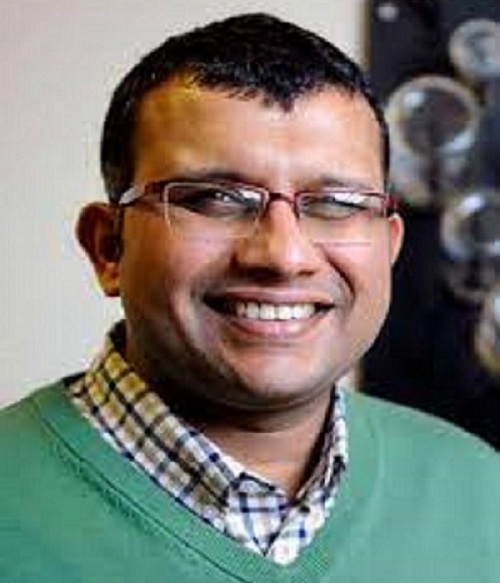
Ameet Pinto, Ph.D.
Carlton S Wider Associate Professor, Georgia Institute of Technology
Drinking Water Microbiome, Microbial Ecology, Extremophiles
Dr Ameet Pinto is an Environmental Engineer and Carlton S Wilder Associate Professor in Civil and Environmental Engineering at Georgia Institute of Technology (Georgia Tech). Ameet is a Chemical Engineer from Institute of Chemical Technology (University of Mumbai) with post-graduate degrees in Environmental Engineering from the University of Alaska (2005) and Virginia Tech, USA (2009). Prior to joining Georgia Tech in 2021, he was an Assistant Professor at Northeastern University and Lecturer/Senior Lecturer at the University of Glasgow. Ameet’s research focuses on the development and application of state-of-the-art molecular and modelling tools to monitor and manage the microbiology of drinking water systems to improve the sustainability of treatment processes and enhance the safety and security of drinking water.
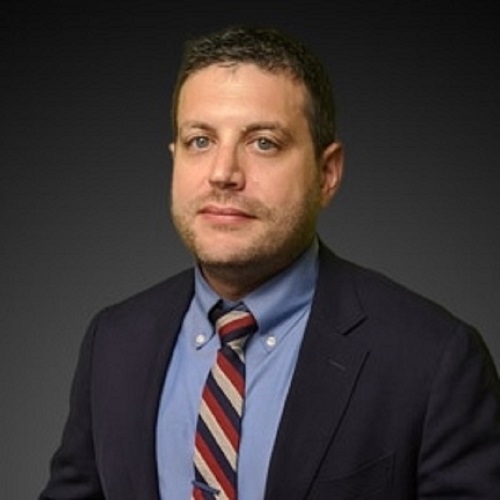
Jonah Schein
US EPA
Jonah Schein is the National Program Manager for Homes & Buildings at the U.S. Environmental Protection Agency’s (EPA) WaterSense® Program. He has overseen the technical development and implementation of the WaterSense labeled homes program since its inception in addition to numerous efforts to better understand and influence water use in the field. In addition to the WaterSense labeled homes program, these have included the EPA Water Score for multifamily properties as well as several standards, research reports, and papers focused on modelling, quantifying, and understanding water use. Mr. Schein holds Bachelor of Arts and Bachelor of Science degrees from Indiana University as well as a Master of Science in Environmental Science from the Johns Hopkins University.
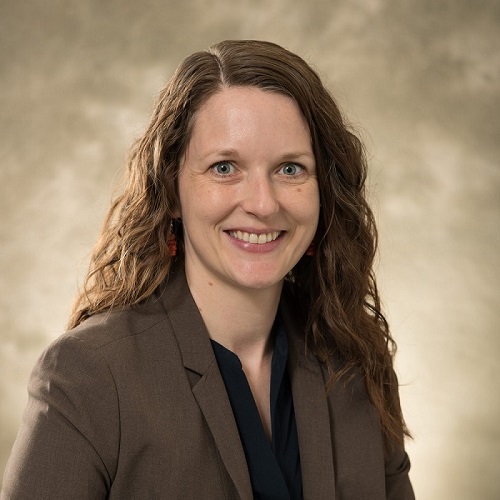
Ashlynn S. Stillwell, Ph.D, PE
Associate Professor, Elaine F. and William J. Hall Excellence Faculty Scholar, University of Illinois at Urbana-Champaign
Residential Water Heating, Energy Efficiency, End-Use Disaggregation
Ashlynn S. Stillwell is an Associate Professor and the Elaine F. and William J. Hall Excellence Faculty Scholar in Civil and Environmental Engineering at the University of Illinois at Urbana-Champaign. Her research focuses on creating sustainable water and energy systems in a policy-relevant context. She earned a B.S. in Chemical Engineering from the University of Missouri (2006), and an M.S. in Environmental and Water Resources Engineering (2010), M.P.Aff in Public Affairs (2010), and Ph.D. in Civil Engineering (2013) from The University of Texas at Austin. She received the National Science Foundation CAREER award and the UCOWR Early Career Award for Applied Research. She currently serves as Chair of the Board of Directors of the Girl Scouts of Central Illinois.
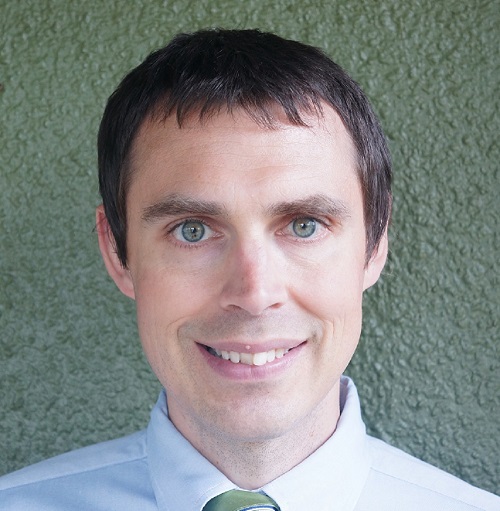
Jeff Szabo, Ph.D, PE
US EPA
Flushing, Hot Water Heaters, Decontamination, Disinfection
Jeff Szabo has a BS in Chemical Engineering and a MS and PhD in Environmental Engineering, all from the University of Cincinnati and is a registered Professional Engineer in Ohio. He has worked for the USEPA for 17 years. He conducts and manages water security research projects at EPA’s Test and Evaluation (T&E) facility and the Water Security Test Bed (WSTB) at the Idaho National Lab (INL). These projects include examining chemical, biological and radiological contaminant persistence on drinking water and waste water infrastructure and evaluation of decontamination and water treatment methods.
Tania Ullah
NIST
More information to come
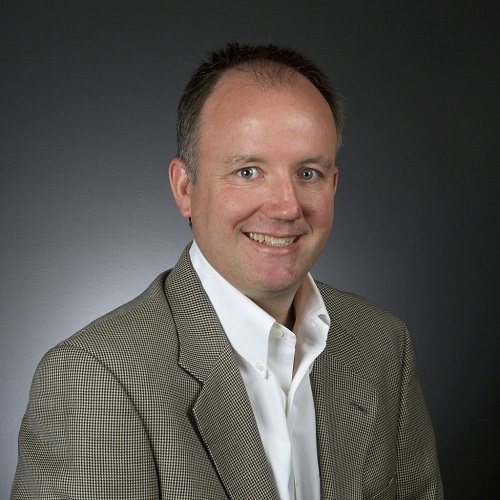
Paul Westerhoff, Ph.D.
Arizona State University
Water Treatment Processes, Water Quality, Disinfection-By-Products, Nanostystems
Professor Westerhoff has garnered wide recognition for his work related to treatment and occurrence of emerging contaminants and disinfection-byproducts in water, and has been active in multidisciplinary research. He has led research investigating the risks and beneficial uses nanomaterials in water, developing technologies for water and reuse treatment, modeling reactions and fate of oxo-anions (nitrate, arsenate) during water treatment, characterization, treatment and oxidation of natural organic matter, formation of disinfection by-products, removal of taste and odor micropollutants. He is currently the deputy director of the NSF-funded Nanosystems Engineering Research Center for Nanotechnology Enabled Water Treatment (NEWT) and co-deputy director of the NSF Science and Technologies for Phosphorus Sustainability (STEPS) center.
- © Untitled
- Design: HTML5 UP